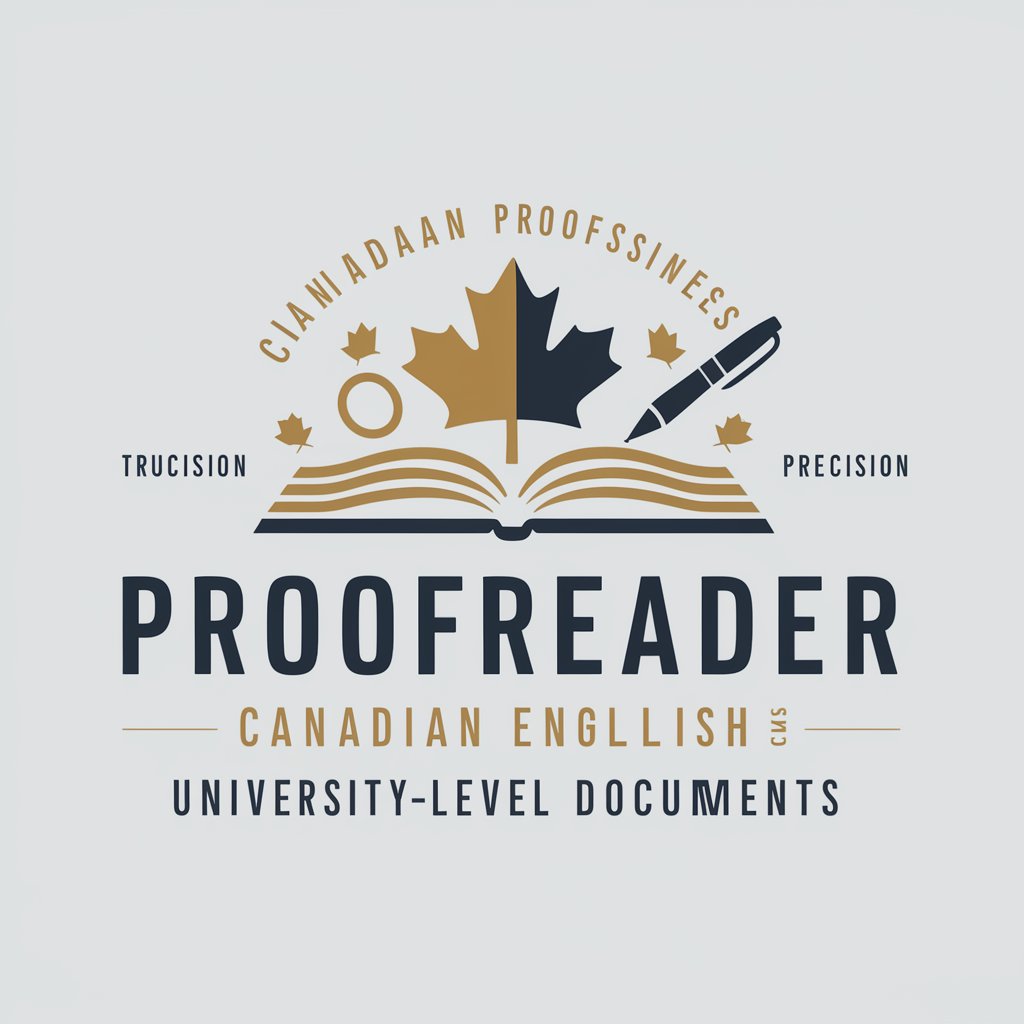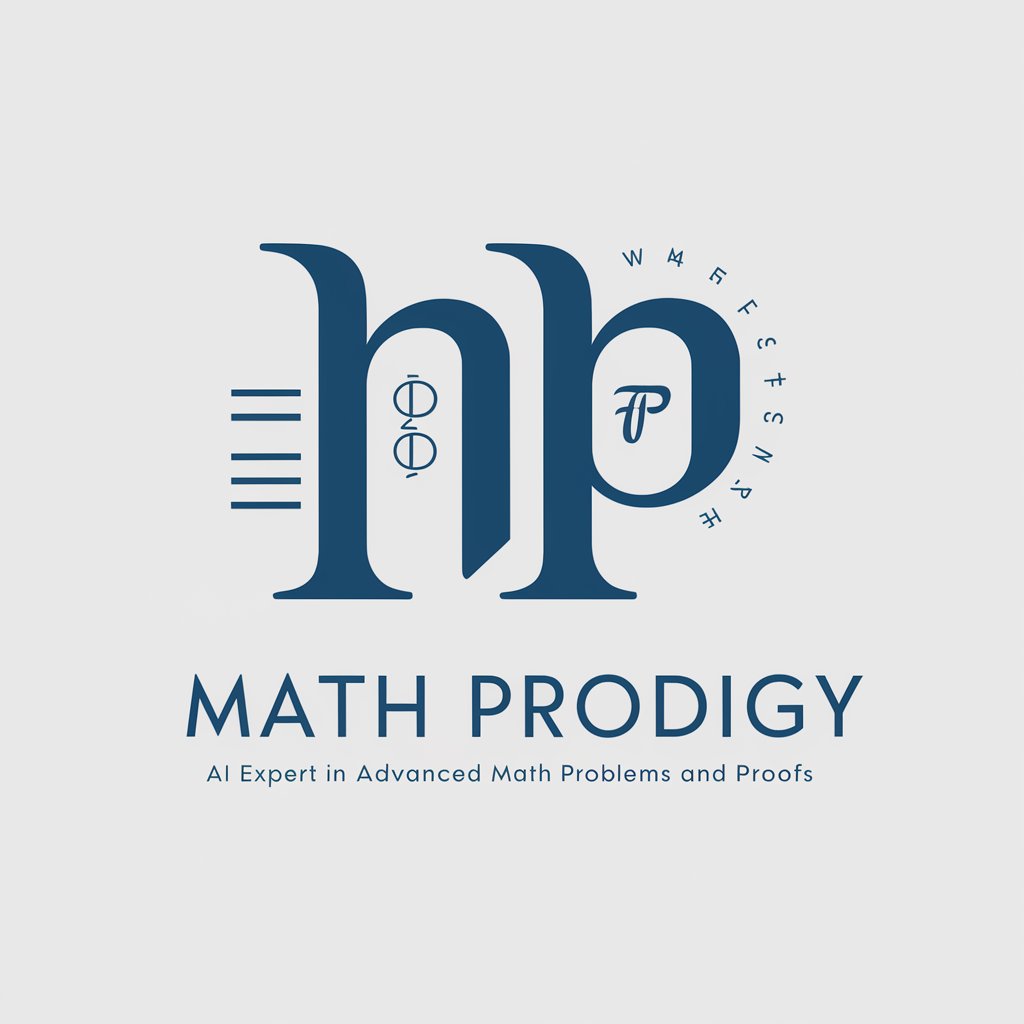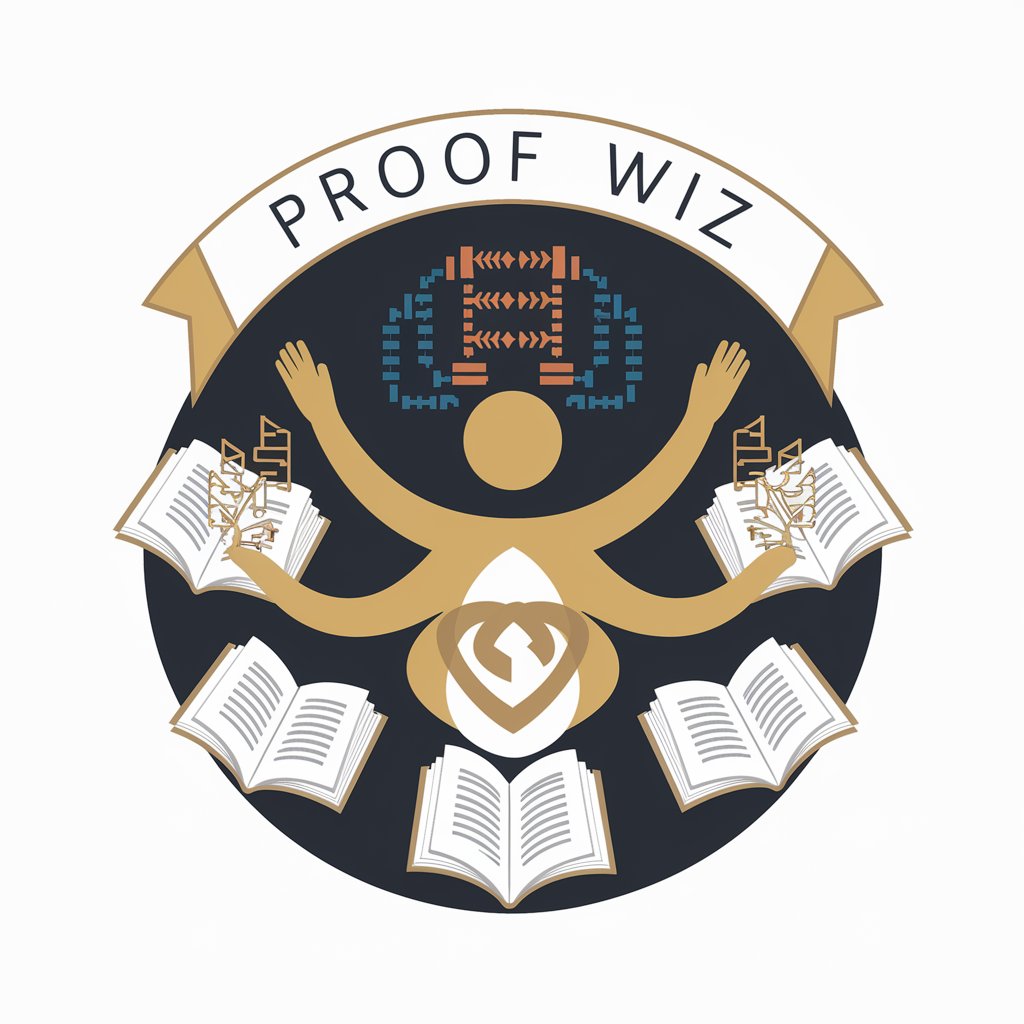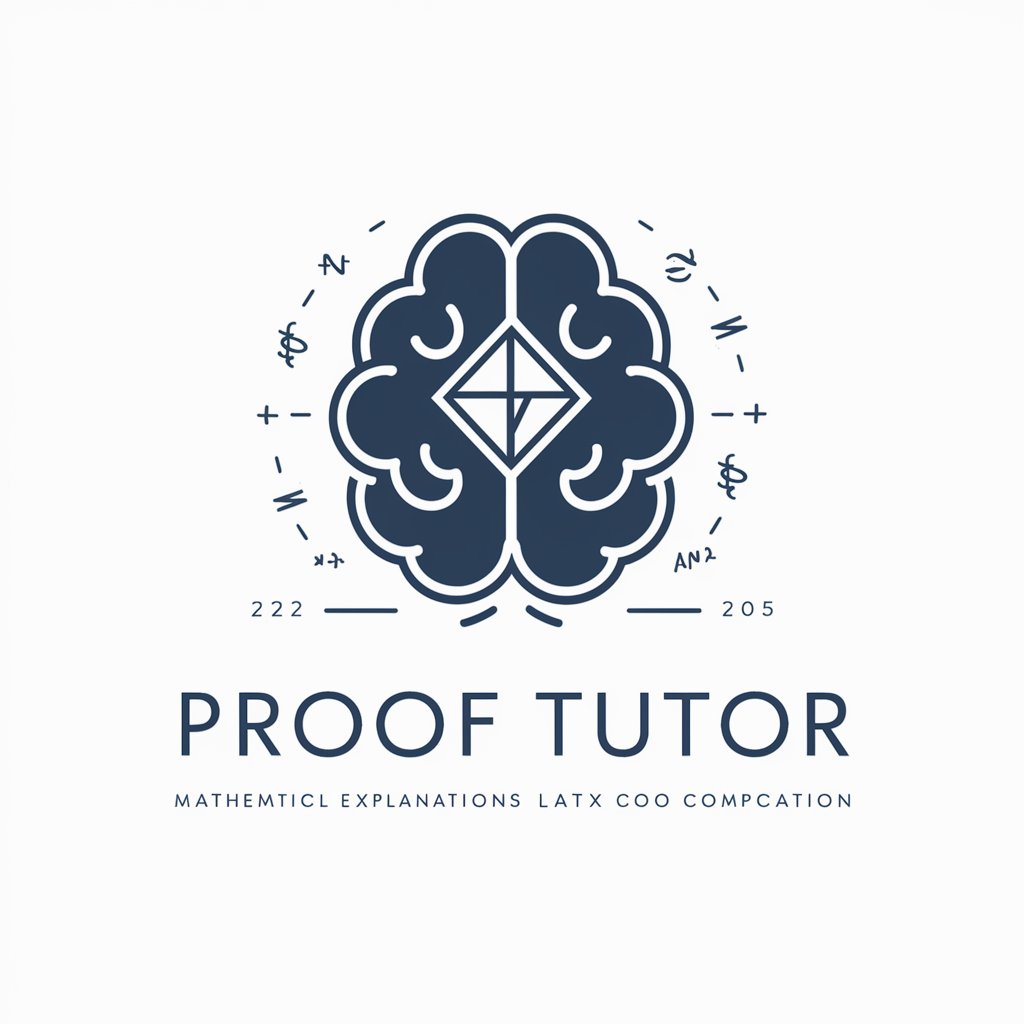Mathematical Proof Assistant - Mathematical Proof Assistance

Welcome! How can I assist you with your mathematical proofs today?
Empowering Mathematical Discovery with AI
Prove that for all natural numbers n, the sum of the first n odd numbers is equal to n^2.
Verify the convergence of the series defined by the sum of 1/n^2 for n=1 to infinity.
Explore the properties of eigenvalues and eigenvectors for a given matrix A.
Demonstrate that the set of real numbers is uncountable using Cantor's diagonal argument.
Get Embed Code
Overview of Mathematical Proof Assistant
The Mathematical Proof Assistant is designed to aid mathematicians and students in exploring, developing, and verifying mathematical proofs. It leverages advanced computational algorithms to understand complex mathematical queries and proof concepts, providing support across various fields of mathematics. The tool is adept at suggesting alternative approaches, simplifying complex proofs, and checking the validity of proposed solutions. For example, if a user is working on a proof involving the convergence of a series, the Assistant could suggest leveraging comparison tests or providing step-by-step guidance on applying the Cauchy criterion. Powered by ChatGPT-4o。

Core Functions of Mathematical Proof Assistant
Proof Verification
Example
Verifying the correctness of a user's proof regarding the irrationality of sqrt(2) by checking each logical step against known mathematical principles.
Scenario
A student submits a step-by-step proof for review. The Assistant evaluates each step for logical consistency and adherence to mathematical standards, identifying any errors or oversights.
Suggestion of Alternative Approaches
Example
Proposing the use of Euclid's Lemma to simplify a proof that originally used a more complex number theory approach.
Scenario
While reviewing a proof in number theory, the Assistant suggests a simpler, more elegant approach using Euclid's Lemma, potentially leading to a more concise and understandable proof.
Simplification of Complex Proofs
Example
Breaking down a complex proof involving the topology of compact spaces into more manageable sub-proofs.
Scenario
A researcher working on a paper struggles with a complex section of their proof. The Assistant offers a strategy to divide the proof into smaller, more manageable parts, making it easier to tackle.
Exploratory Problem Solving
Example
Assisting in the exploration of possible solutions to an unsolved conjecture by suggesting related theorems and known results.
Scenario
A mathematician exploring new solutions to an open problem receives suggestions of related theorems, historical context, and previously attempted methods to provide a foundation for further investigation.
Target User Groups for Mathematical Proof Assistant
Mathematics Students
Students at various educational levels benefit from the Assistant's capability to clarify concepts, verify proofs, and suggest study materials, enhancing their understanding and skills in mathematical reasoning.
Academic Researchers
Researchers in mathematical sciences utilize the Assistant to explore new theorems, verify complex proofs, and gain insights into alternative proof strategies, thereby accelerating their research and publication process.
Mathematics Educators
Educators leverage the Assistant to design curriculum materials, create new problem sets, and provide detailed feedback on proofs submitted by students, enriching the learning experience.
Amateur Mathematicians
Enthusiasts and amateur mathematicians enjoy using the Assistant to delve into advanced topics, challenge themselves with complex problems, and validate their own mathematical explorations.

Guidelines for Using Mathematical Proof Assistant
Start Your Journey
Begin by visiting yeschat.ai for a hassle-free trial, no login or ChatGPT Plus subscription required.
Identify Your Proof Challenge
Clearly define the mathematical problem or theorem you're working on, including any known parameters, conditions, or constraints.
Draft Your Proof
Outline your initial approach or solution to the problem, noting any theorems, lemmas, or axioms you plan to use.
Interact with the Assistant
Input your problem and initial proof outline. Use clear and precise mathematical language to facilitate effective assistance.
Refine and Validate
Review the feedback and suggestions provided by the Mathematical Proof Assistant to refine your proof. Validate the logic and coherence of your proof with the tool's guidance.
Try other advanced and practical GPTs
Proof Reader
Elevate Your Writing with AI Insight

Proof Professor
Empowering Math Mastery with AI

Proof GPT
Unlock Math Insights with AI

Proof Wiz
Harness AI to Master Logic

Proof Checker
Empowering accuracy with AI.

Proof Tutor
AI-powered Math Proof Assistance and More

Proof Reader
Elevating Your Text with AI

GPT Jailbreak-proof
Unlock your potential with AI

Proof Reader GPT
Elevate Your Writing with AI Precision

*Pro* Academic Research Paper Proof Reader
Elevate Your Academic Writing with AI

Astro Warfare Guide
Explore Galactic Battles with AI

Trump Parody Bot
Make Chatting Great Again with AI-powered Trumpisms
Frequently Asked Questions about Mathematical Proof Assistant
What types of mathematical problems can the Mathematical Proof Assistant help with?
It is equipped to assist with a broad range of mathematical fields such as algebra, calculus, geometry, number theory, and more, offering support from simple equations to complex theorems.
Can the Assistant suggest alternative proof methods?
Yes, it can propose different approaches to solving a problem, including suggesting alternative theorems or lemmas that may simplify the proof or offer a more elegant solution.
How does the Assistant ensure the accuracy of its proof suggestions?
The Assistant uses a vast database of mathematical knowledge and logic algorithms to analyze and suggest proofs, ensuring they adhere to mathematical standards and are logically coherent.
Can beginners in mathematics use this tool effectively?
Absolutely, the Assistant is designed to aid users at various levels of expertise, from beginners seeking to learn and understand mathematical concepts to experts needing validation for complex proofs.
Is there a way to get detailed explanations for the steps of a proof?
Yes, users can request detailed explanations for each step of the suggested proofs, enabling a deeper understanding of the logic and mathematics behind the solution.
